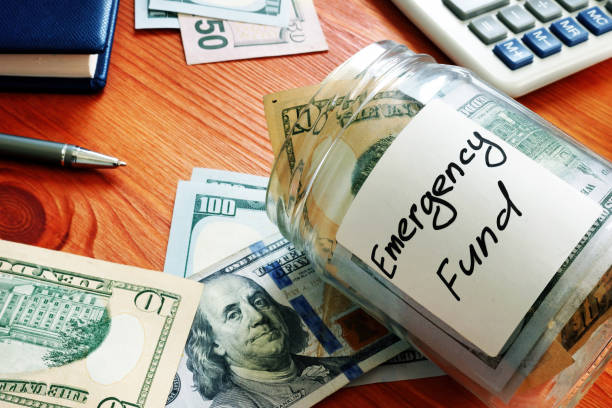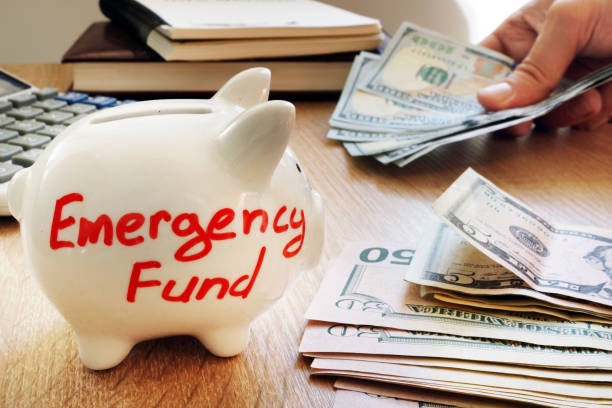Emergency Funds 101: Why You Need One and How to Build It Quickly
Life is full of surprises—some delightful, others not so much. Whether it’s an unexpected medical bill, car repair, or sudden job loss, financial emergencies can strike without warning. This is where an emergency fund becomes your financial lifeline. It offers peace of mind, stability, and a sense of control when life throws curveballs your way.
Thank you for reading this post, don't forget to subscribe!In this guide, we’ll explore the importance of an emergency fund, how much you should save, and practical strategies to build emergency savings quickly. Plus, we’ll sprinkle in valuable emergency fund tips to help you secure your financial safety net with ease.

Why an Emergency Fund is Non-Negotiable
An emergency fund isn’t just a nice-to-have; it’s a must-have. Here’s why:
- Financial Security: Provides a cushion during unexpected events.
- Peace of Mind: Reduces stress, knowing you’re prepared.
- Avoids Debt: Helps you manage emergencies without relying on credit cards or loans.
- Job Loss Safety Net: Offers stability during periods of unemployment.
The Benefits of an Emergency Fund
- Freedom from Financial Stress: Knowing you have a backup plan reduces anxiety.
- Better Decision-Making: You can focus on solutions, not just survival.
- Prepares for the Unexpected: Whether it’s a broken boiler or urgent travel, you’re covered.
- Supports Long-Term Goals: Keeps you from derailing your savings or investment plans.
How Much Should You Save in an Emergency Fund?
The golden rule is to save three to six months’ worth of living expenses. However, this can vary based on your circumstances:
- Single Income Households: Aim for 6 months or more.
- Dual Income Families: 3-4 months may suffice.
- Freelancers/Business Owners: Save 6-12 months due to income unpredictability.
Use an Emergency Fund Calculator to estimate your ideal savings based on your monthly expenses.
How to Start an Emergency Fund from Scratch
Starting might feel overwhelming, but breaking it down makes it manageable.
Step 1: Set a Realistic Goal
Determine how much you want to save. Start small if needed—even £500 can make a difference.
Step 2: Open a Separate Savings Account
Keep your emergency fund separate from your regular accounts to avoid temptation.
Step 3: Automate Your Savings
Set up automatic transfers to build emergency savings effortlessly.
Step 4: Save Windfalls and Bonuses
Tax refunds, work bonuses, or unexpected cash gifts? Add them straight to your emergency fund.
Step 5: Cut Unnecessary Expenses
Review your budget for areas to reduce spending. Redirect these savings to your emergency fund.

Emergency Fund Strategies to Build It Quickly
Side Hustles: Freelancing, tutoring, or gig work can boost your income. Whether you’re a graphic designer, a writer, or have a knack for social media management, there’s a demand for your skills. Platforms like Upwork, Fiverr, and TaskRabbit make it easy to find side gigs. Even part-time roles, such as dog walking, babysitting, or delivering food, can add up quickly.
Sell Unused Items: Declutter your home and sell items online. Go through your wardrobe, garage, and attic—you’ll be surprised by what you no longer need. List items on platforms like eBay, Facebook Marketplace, or Vinted. Not only will you earn extra cash, but you’ll also enjoy a tidier space.
Cut Back Temporarily: Skip luxuries like dining out until you reach your goal. Brew coffee at home instead of hitting your favourite café. Opt for home-cooked meals, which are often healthier and more budget-friendly. Reduce entertainment expenses by swapping pricey nights out for cosy movie nights in.
Budget Adjustments: Use budgeting apps to track and save efficiently. Apps like YNAB (You Need a Budget) or Mint can help you identify unnecessary expenses and redirect that money towards your emergency fund. Create a budget that prioritises savings while still covering your essentials.
Challenge Yourself: Try savings challenges like the 52-week challenge. Start by saving £1 in week one, £2 in week two, and so on. By the end of the year, you’ll have saved over £1,300. If you prefer quicker results, consider a no-spend month where you only cover absolute necessities, funnelling the rest into your emergency fund.
Quick Ways to Save Money for Your Emergency Fund
Pack Lunches Instead of Eating Out
Cancel Unused Subscriptions
Use Cashback and Discount Apps
Negotiate Bills (like internet or insurance)
Buy Generic Brands
Smart Emergency Fund Tips for Long-Term Success
Review Regularly: Life changes, so adjust your fund as needed.
Keep It Liquid: Store in an account that’s easy to access but earns interest.
Don’t Dip Into It Lightly: Only for genuine emergencies, not holidays or shopping sprees.
Replenish Quickly: If you use it, prioritise rebuilding.
Common Mistakes to Avoid
Not Saving Enough: Underestimating potential emergencies. Many people assume small savings will suffice, but emergencies can be more costly than anticipated. Medical bills, car repairs, or sudden job loss often exceed expectations, leaving you financially vulnerable.
Keeping It Too Accessible: Temptation can lead to unnecessary withdrawals. Storing your fund in the same account as your daily spending money increases the risk of dipping into it for non-emergencies. A separate, slightly less accessible account helps maintain discipline.
Neglecting to Update: Failing to adjust for changes in lifestyle or expenses. Life events like moving to a new city, having a child, or changing jobs can significantly impact your financial needs. Regularly review and adjust your emergency fund to reflect your current circumstances.
Real-Life Example
Eunice, a marketing executive, lost her job unexpectedly. Thankfully, she had six months of living expenses saved. This fund gave her the freedom to job hunt without panic, avoid debt, and even upskill during her time off. Her emergency fund turned a crisis into an opportunity.
Conclusion
Building an emergency fund might seem daunting, but with small, consistent steps, you can create a solid financial safety net. Remember, it’s not just about money—it’s about peace of mind and resilience. Use the emergency fund tips shared here, stay committed, and watch your savings grow.
Your future self will thank you for the financial security you’ve created today.

